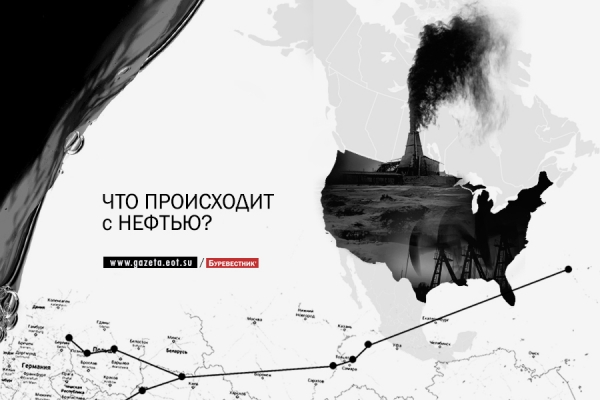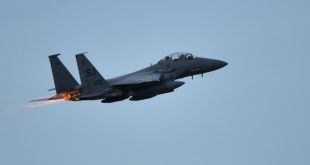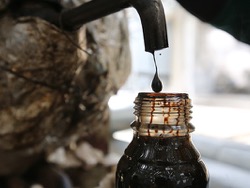
As the failure of the Doha negotiations will impact on the ruble
The largest oil producers failed the talks in Doha. They failed to come to a consensus regarding the freeze of production. The lack of unanimity among the suppliers of oil threatens to bring down not only quotes, but also to order the final death of OPEC in its present form.
What happened?
Country-the oil producers failed to agree on a freeze of production. In the summit, which was held in the Qatari capital Doha, was attended by Russia, Saudi Arabia, UAE, Venezuela, Algeria and a number of States, most of which is in OPEC.
More than six hours of negotiations, so to anything and did not lead Saudi Arabia refused to sign any documents without the participation of all members of OPEC, and the Iranian representatives refused even to attend the Qatar summit. The Minister of energy of Nigeria Emmanuel IBE Cacique announced that the next meeting in a similar format will be held in June — after the cartel members will develop a unified position regarding the freeze of production. In General, negotiators met, consulted and decided to meet again.
The whole week from 11 to 15 April, the market was reeling from the news and rumors appearing in advance of negotiations. The emphasis is on the message that Moscow and Riyadh came to a consensus on the issue of freezing the production. Saudi Arabia is ready to take this step without taking into account the position of Iran, emphasized a diplomatic source in Qatar.
However, on 1 April, Saudi Prince Mohammed bin Salman has clearly said that the Kingdom will limit its production only together with Tehran, and foretold the coming of the twilight of the oil age.
The information that Riyadh and Moscow were able to agree, were supported by quotations above 44 dollars. The disappointment of the market is able to cause serious pressure.
Both behave the oil?
Auction reference grade Brent on London exchange ICE will begin on Monday, April 18, at 1:00 GMT. At this point, you’ll see the market reaction to the results of the Qatari summit. News about the failure of the negotiations will definitely lead to falling prices — the only question is how much cheaper oil.
In the investment division of Sberbank — Sberbank CIB — expect that the barrel will fall in price to $ 30-35 (the probability of this scenario, dubbed “Miserable failure”, experts estimated at 20 percent).
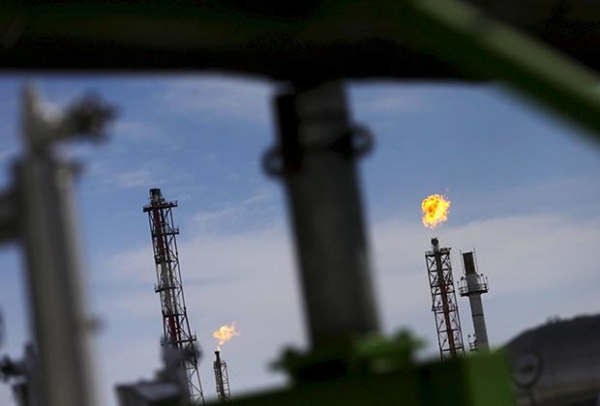
Because the negotiations fail, the oil could drop to $ 30 per barrel
Photo: Edgard Garrido / Reuters
If the transaction fails, the quotes would go up to 45 dollars, even higher oil prices might go in the case of accession to freeze production of Iran. In Sberbank CIB allowed the growth to $ 50.
In Bank of America predicted that in the case of unsuccessful negotiations, the oil will fall below $ 40 per barrel, but if Saudi Arabia will start to boost production of black gold will drop to $ 30.
Obviously, the refusal of global cooperation in the energy market will lead to a drop in oil prices. It could drop to 30-40 dollars.
What will happen to the ruble?
The Russian currency remains strongly tied to oil. Therefore, falling energy prices will hurt the ruble. On 12 April, with increased oil prices, the dollar fell below 66 rubles for the first time from November 2015. By the end of the working week it traded in the range of 66-66,50 rubles.
Further reaction of the national currency will become visible on April 18 at 10:00 GMT — it is then start trading on Moscow exchange.
Senior analyst PSB Alexey Egorov admits that the dollar will return to a mark of 68 rubles. In the scenario “miserable failure” predicted by Sberbank CIB, is the growth of the American currency to 70-75 rubles.
In any case, Russians don’t need to worry much: still the authorities would not allow significant strengthening of the ruble — dollar met the resistance of the Ministry of Finance and the Bank of Russia. Finance Minister Anton Siluanov said that the government will retain the low ruble exchange rate and oil revenues with the growth of quotations will be withdrawn to the Reserve Fund. The Central Bank may start to sell roubles and to buy foreign currency to replenish international reserves (Central Bank’s strategic goal — to increase investment volumes to $ 500 billion; now it is 387 billion).
The relatively low rate of the ruble remains one of the few advantages of the Russian economy. Especially it helps the exporters. The Russian economy has adjusted to low oil prices and the depreciation of the ruble will help to increase the supply of goods in China and Europe, said on March 23, Deputy Prime Minister Arkady Dvorkovich.
The failure of the Qatari summit will lead to depreciation of the national currency. The dollar can grow up to 68-75 rubles.
What will happen with the oil market?
Him, as before, will continue to influence the fundamental factor is the balance of supply and demand. He is now skewed towards consumers: importers of hydrocarbons favorable low prices. The producers failed to present a United front, so falling oil prices could resume and accelerate.
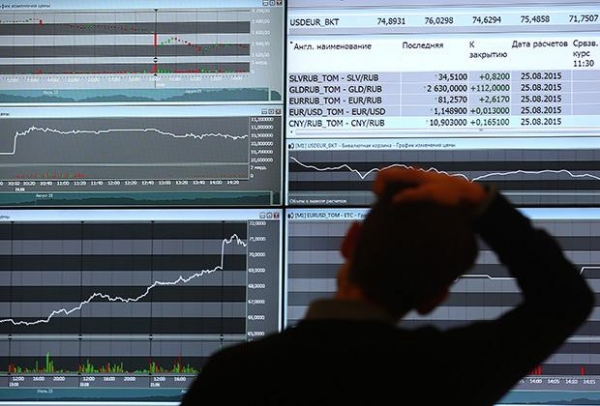
Demand for oil won’t recover until the world economy starts to grow at a faster pace
Photo: Sergei Fadeichev / TASS
The situation will become worse if the extraction and will continue to grow. According to the International energy Agency, Russian companies in March increased production by 220 thousand barrels per day — up to 10,91 million barrels. In February, according to the Central dispatching control (CDC) of the fuel and energy sector, Russia has increased production by 5.3 percent compared to the same month last year. All other States not included in OPEC can increase production to keep up in the race for market share.
Vygon Consulting experts in the study “Russia, the US and OPEC: who affect the oil market?” indicate that even the decision to freeze would not lead to the disappearance of market imbalance. To balance OPEC must return to quotas, and to go to more drastic steps than simple fixation at current production levels. To remove excess you need to cut production by 500 thousand barrels per day, with the participation of Iran. Otherwise, the decline in production of other cartel members, especially Saudi Arabia, must be 800 thousand barrels per day.
“Forget about this topic”, — said the Minister of oil of Saudi Arabia Ali al-Nuaimi on the question of the possible reduction of oil production. So on reducing supply should not count. And the demand will rise only if the global GDP will increase at a faster pace. The IMF has lowered its forecast for global growth to 3.2 percent in 2016, and one of the largest consumers of hydrocarbons on the planet — China — finished 2015 with the worst for a quarter of a century the result is 6.9%. Hope for rise in demand and subsequent balancing of the market too early. No wonder the Bank of Russia continues to believe in its baseline scenario, which laid the average oil price of us $ 30 per barrel.
In General, the failure of the talks make out the final death of OPEC in its present form. Chairman, IHS Daniel Yergin, the energy historian the industry dubbed the “oil guru”, said that the cartel already can’t do anything: he does not act on the market as a single force, its members are divided and pursue only their own interests. Moreover, in previous years, OPEC could not meet even their own limitations. Until December 2015 the organization was established production quota at 30 million barrels per day — that is the amount of oil could produce all OPEC members. The quota was constantly violated.
Key manufacturers black gold is not ready to cut or at least freeze its own production and lose revenue, so the imbalance will remain as long as will not grow the demand for oil.



